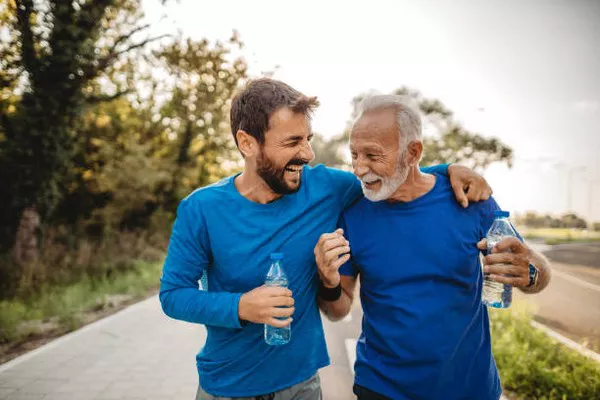Researchers have embarked on an innovative journey using virtual reality (VR) to motivate individuals with intellectual disabilities in South Australia to embrace regular physical exercise. By employing a cutting-edge gaming program, the study aims to cultivate positive exercise routines and mitigate the heightened susceptibility of these individuals to early-onset cardiovascular diseases, strokes, and heart attacks.
Collaborating with 16 participants from the Bedford Group, Dr. June Alexander and Dr. Joyce Ramos from Flinders University have pioneered an eight-week VR-based exercise program. This initiative strives to inspire individuals with intellectual disabilities to adopt rigorous exercise routines, thereby fostering long-term enhancements in their physical fitness approaches.
The program entails supervised one-hour sessions, conducted three times per week, utilizing a commercially available VR system at the Bedford Group. Within each session, participants immerse themselves in popular game apps like Dance Central, Beat Sabre, the Thrill of the Fight, and Space Pirate Trainer, among others, dedicating 50 minutes to exercise.
The researchers closely monitor crucial metrics such as participants’ heart rate, perceived exertion rate, and intensity volume throughout the trial. By documenting the results, the team systematically traces the participants’ physical progress over time.
The decreasing cost of commercially available VR systems has opened new possibilities. The researchers emphasize that VR technology now offers an unprecedented gateway to a diverse array of secure activities, erasing the exclusions often faced by individuals with disabilities.
Dr. Alexander, a Lecturer in Disability and Inclusion at the College of Nursing and Health Sciences, highlights the concerning trend wherein most Australians with developmental disabilities fall short of globally recommended levels of physical activity, thereby elevating their risk of cardiovascular ailments. Dr. Alexander emphasizes that the low engagement in regular exercise by individuals with intellectual disabilities can be attributed to motivation issues and limited accessibility to mainstream fitness services. The VR program aims to surmount these obstacles and facilitate participants’ engagement in physical activity.
The VR exercise initiative aims to assess the overall impact of tailored VR activities compared to those not receiving the experimental treatment.
Dr. Ramos, an Accredited Exercise Physiologist and Senior Lecturer at Flinders University, underscores the project’s potential to scale up. He envisions a future where this VR health study can be expanded to assist individuals with intellectual disabilities across Australia in fulfilling their weekly exercise requirements, especially in regional and rural areas with limited access to similar on-site services.
Bedford Chief Operating Officer Rachael Griffiths emphasizes Bedford’s commitment to advancing the health and wellbeing of individuals with disabilities. She lauds the groundbreaking research as a world-first exploration into the benefits of technology on fitness levels for people with disabilities. This approach offers a novel and engaging path to remain active and adhere to exercise routines.
As this pioneering initiative unfolds, it has the potential to transform the exercise landscape for individuals with intellectual disabilities, enhancing both their physical health and overall quality of life.

































